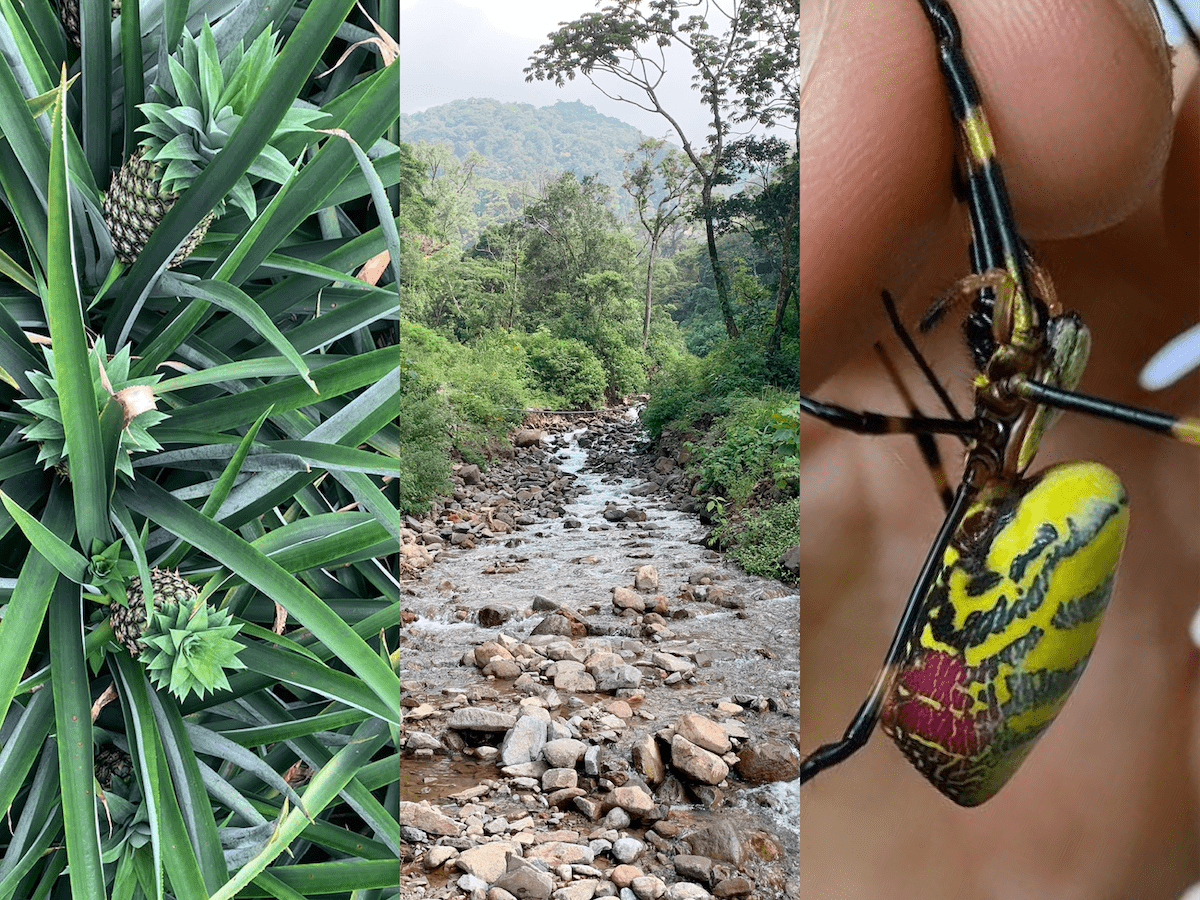Chances are that you’ve heard about research by ecology undergraduate Benjamin Frick, AB ’23. With faculty mentor Andy Davis, Frick coauthored a paper about Joro spiders that was published in Physiological Entomology in 2022 and covered by news outlets from the New York Times to the Today Show. Davis and Frick’s comprehensive analysis of this recently-arrived invasive arthropod, showing that it has the potential to spread throughout the Eastern Seaboard, garnered thousands of media mentions, reaching—and unnerving—an estimated 207 million people (and counting).
While that kind of response to undergraduate research—or any research—is hardly typical, ecology students who participate in research gain many valuable benefits that can help set them up for success in their studies and careers.
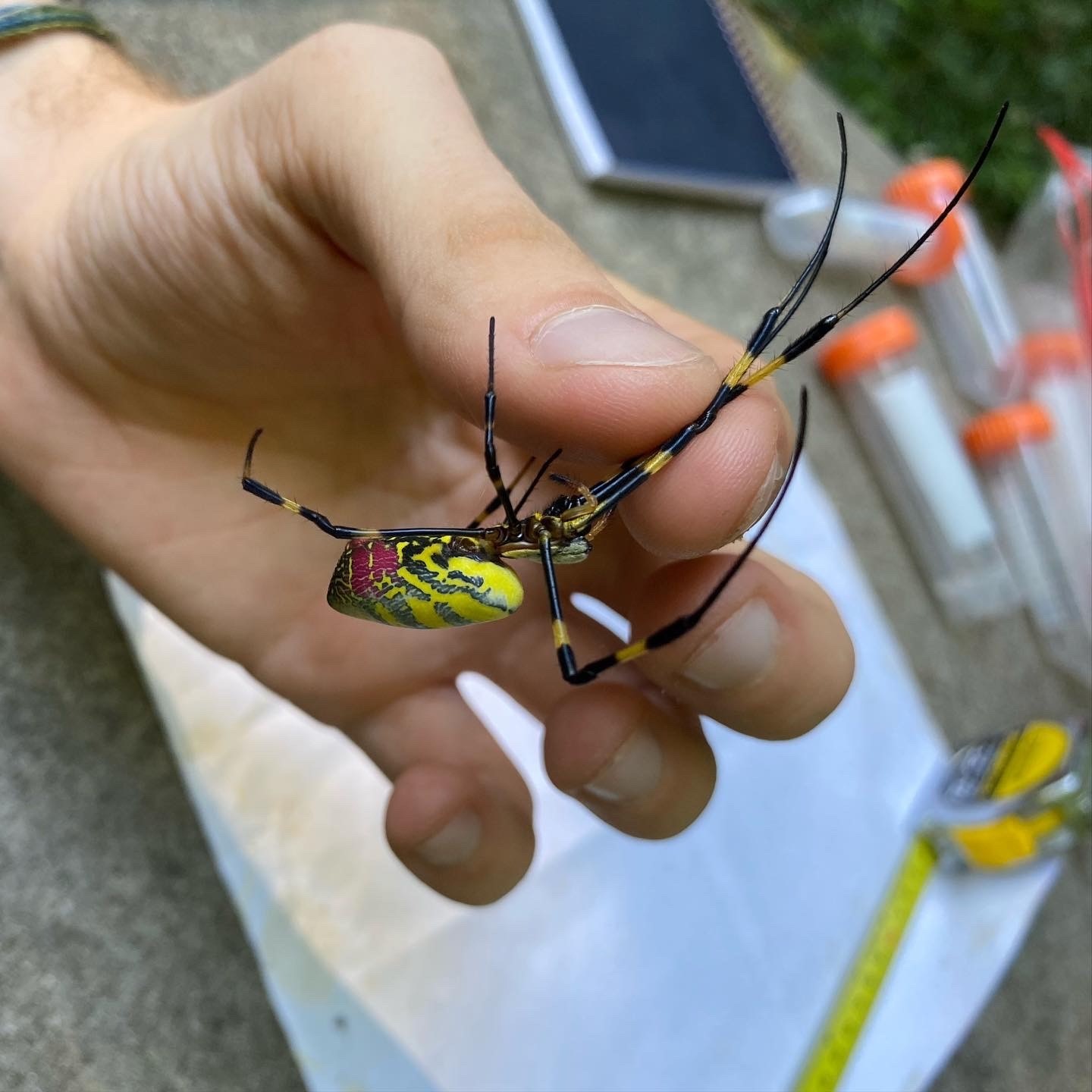
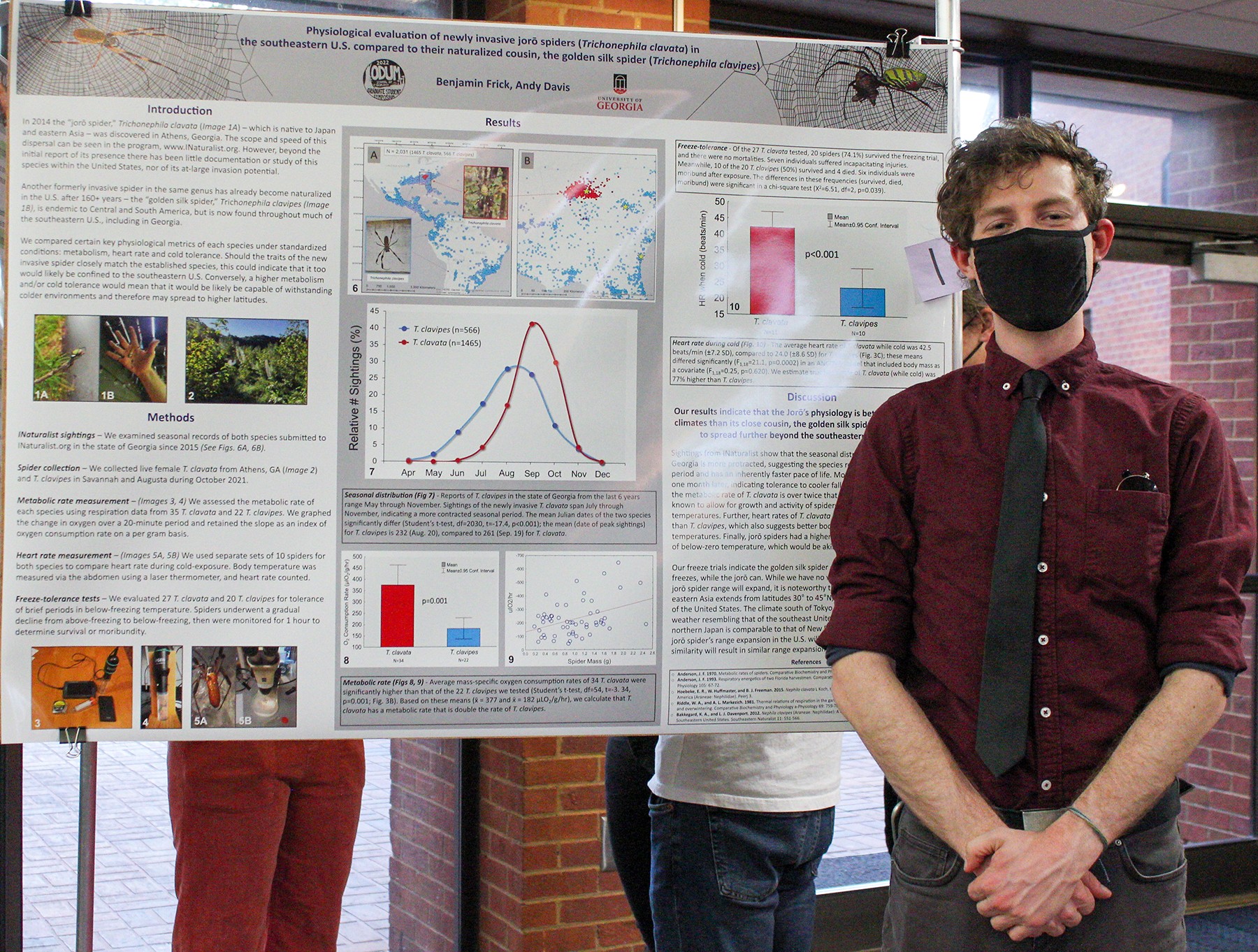
“It was one of those experiences that really demonstrated to me that I was capable of doing things that I really set my mind to,” said Frick, who has also studied Tanaid crustaceans, which he describes as “mini lobsters” that live on barnacles on loggerhead sea turtles, with Prof. John Wares of the Odum School and department of genetics.
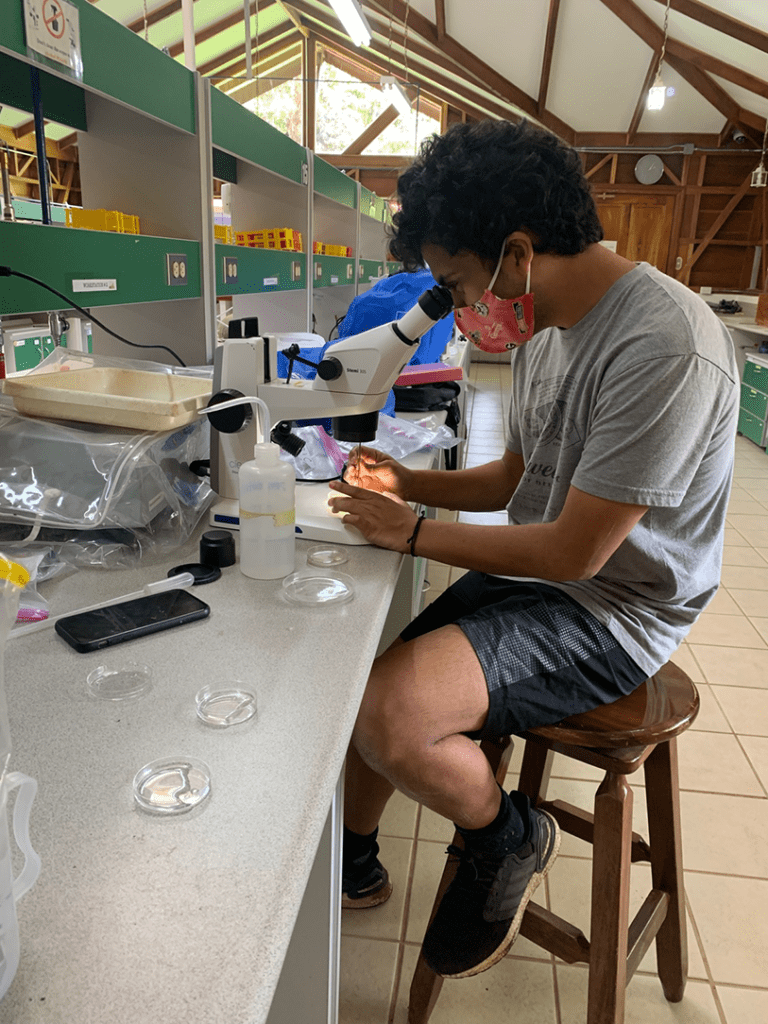
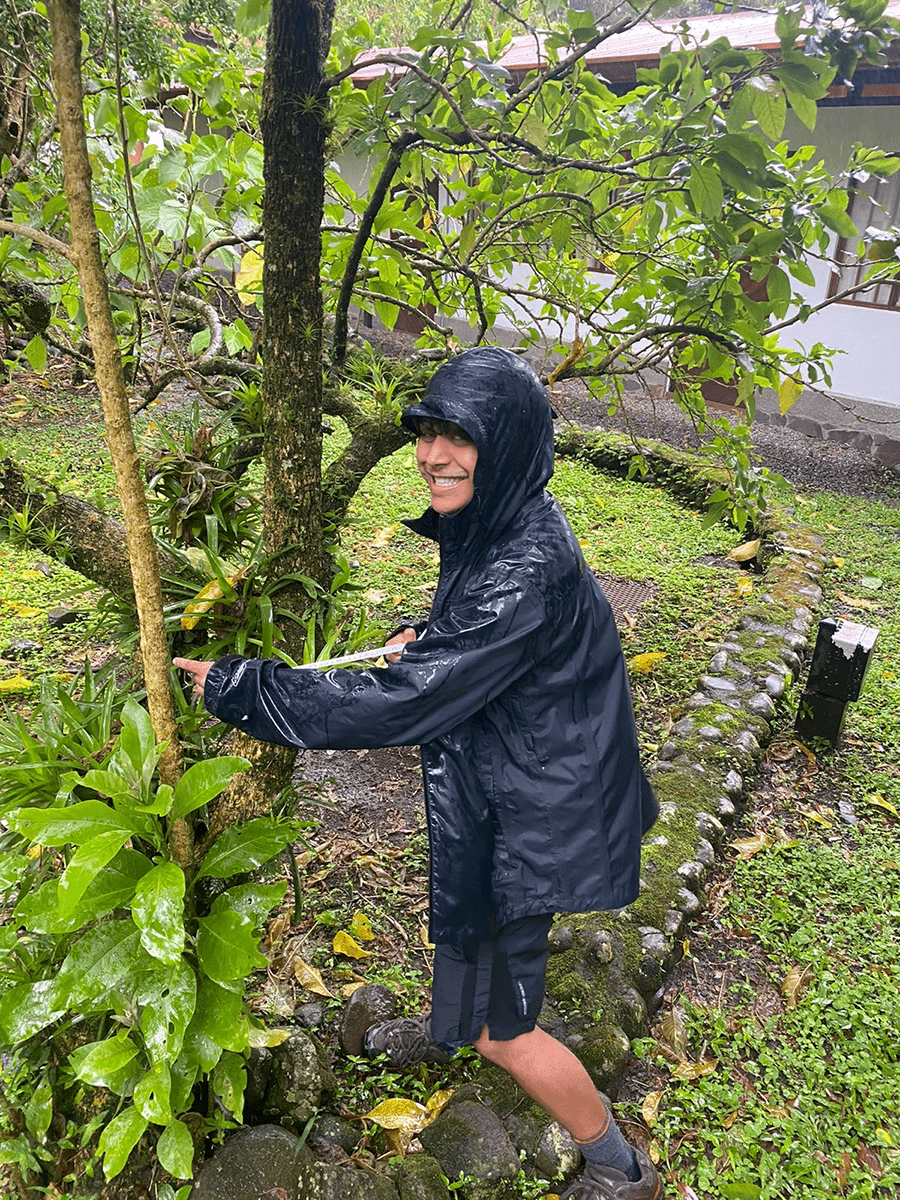
Satyatejas Reddy, a junior majoring in biology and ecology who was recently awarded a Udall Scholarship, began his research journey during his second semester at UGA, studying disease ecology in Prof. Pejman Rohani’s lab. Since then he has gone on to work on several research projects with other faculty members, including a senior thesis on salt marsh biochemistry on Sapelo Island with Amanda Spivak, an associate professor of marine sciences. He credits these experiences with helping him get accepted into a National Science Foundation Research Experience for Undergraduates (REU) program at the Bigelow Lab for Ocean Sciences in Casco Bay, Maine, where he studied clam cancer. Reddy also conducted research on the drivers of decomposition in bromeliads in Costa Rica as part of the Odum School’s Tropical Ecology program with faculty mentor Amanda Rugenski.
Study abroad opportunities were also a catalyst for independent research for Skye Remko, a junior ecology major. Remko got her start with research during her semester in Costa Rica with Rugenski, the Odum School’s undergraduate program coordinator.
“I got the experience of being out in the field, designing my experiments, and knowing what I needed to sample,” Remko said. She is continuing that study, an ongoing project using benthic macroinvertebrates to quantify the recovery of a stream that was devastated by flash flooding during Hurricane Nate in 2017.
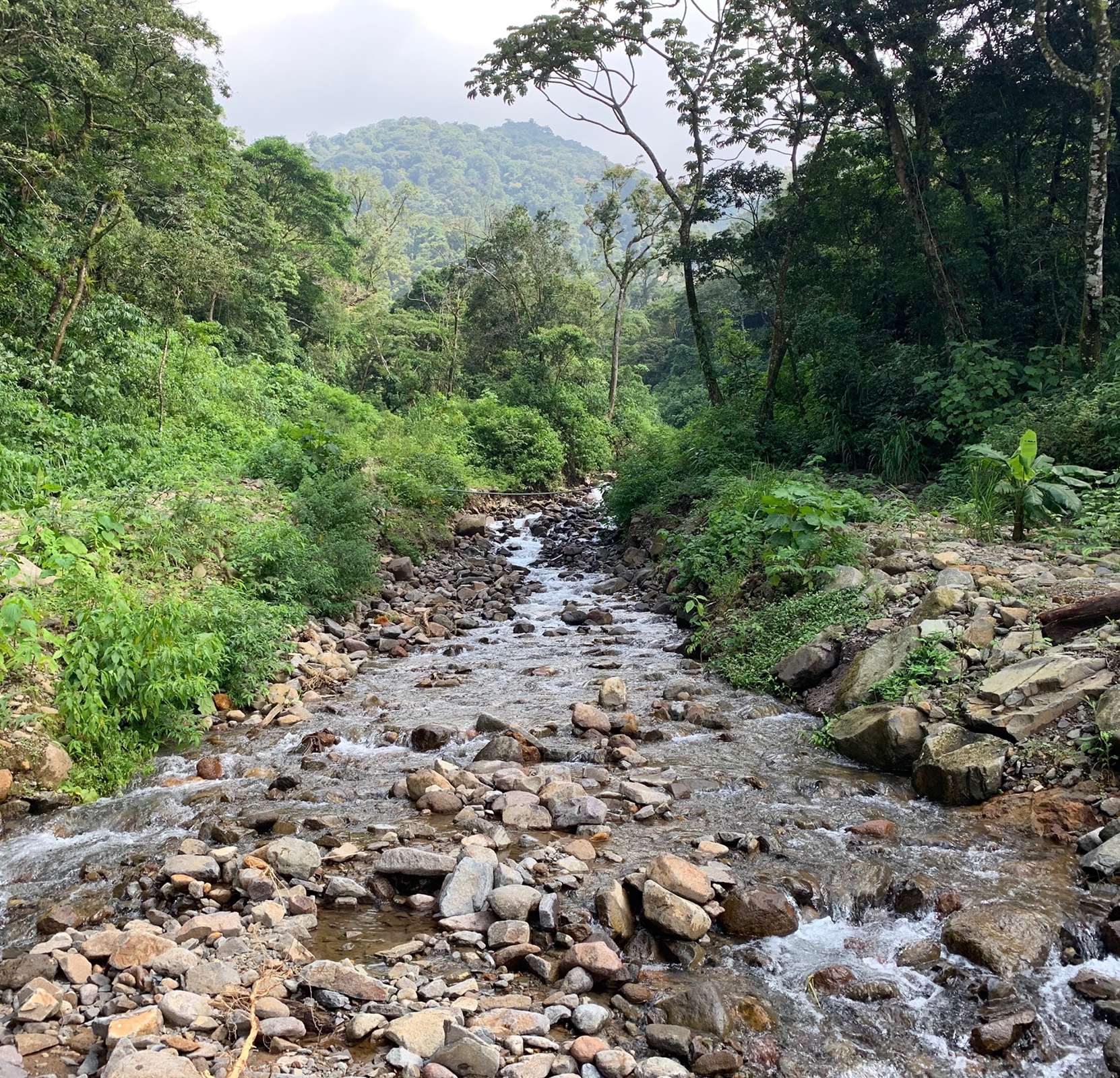
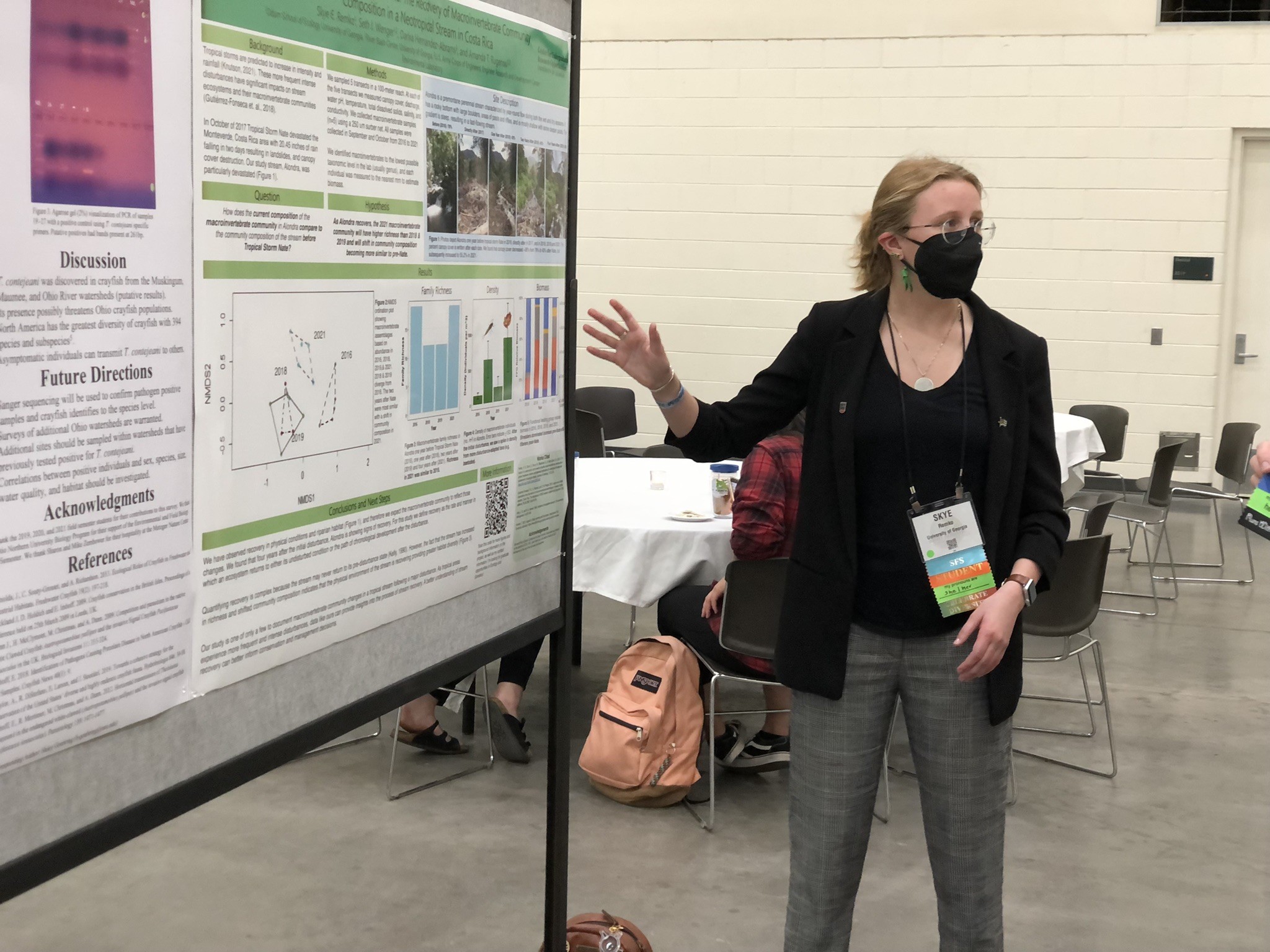
Remko has also gained valuable experience in communicating about her research. In April 2022, she spoke about her project at the UGA CURO (Center for Undergraduate Research Opportunities) Symposium in Athens. She received funding through CURO and the Odum School’s new Undergraduate Experiential Learning Program to present her findings at the 2022 Joint Aquatic Sciences Meeting in May, a gathering of members of nine professional scientific societies.
The benefits of undergraduate research
Davis, an assistant research scientist who has mentored undergraduate researchers for many years, has seen firsthand the impacts research has on students’ interests and careers. Research provides students the opportunity to work collaboratively and individually in an academic setting. Working on a research project also allows students to better conceptualize course material and can help with career path decisions.
“A student who has a degree plus research experience is much better prepared for a job in research or for graduate studies in the academic sciences,” he said.
Davis’s assessment is backed up by data. The Survey of Undergraduate Research Experiences (SURE) is an assessment tool developed by Dr. David Lopatto of Grinnell College and funded by the Howard Hughes Medical Institute. According to findings from a 2007 SURE report, incorporating hands-on research into their education is associated with students persisting in STEM fields, with more than 87% of survey respondents reporting they had either begun or were planning to further their education in science.
The benefits of undergraduate research go both ways. Faculty and graduate students who mentor undergraduate researchers receive invaluable assistance with their projects, from help collecting samples to analyzing data to writing up results.
“Undergraduate research is central to the university’s mission. It helps students develop as critical thinkers, and builds knowledge through discovery,” said Sonia Altizer, interim dean of the Odum School. “Research is about asking a question and designing methods to find an answer. Faculty at the university depend on students to help generate new knowledge and solve problems related to local and global challenges. Students often bring enthusiasm and fresh insights that can change how we approach our research.”
How to get started in research
Getting involved in undergraduate research is easier than students may think. Many faculty members and graduate students at the Odum School have opportunities in their labs for undergraduates; knowing where to look is the first step.
“If you are interested in research, talk with other students, read [Undergraduate Advisor Misha Boyd’s] ‘Notes of Interest’ emails, and look at our faculty webpage and see if there is something that is interesting—and reach out to that faculty member or talk with Misha or me to facilitate a connection,” said Rugenski. She has worked with numerous students, serving as a research mentor to some and helping others get involved with research opportunities in different labs.
CURO is another important resource. Stephanie Schupska, senior communications coordinator for CURO and the Jere W. Morehead Honors College, explained that CURO is dedicated to providing students with both connections and funding for their research. CURO offers research awards, the CURO Honors Scholarship, summer fellowships, and conference participation grants to students conducting research in a faculty member’s lab or with a graduate student.
“A part of what makes UGA so unique is that many faculty members provide research opportunities for students as early as their freshman year in college,” said Schupska.
In 2022, 24 ecology students presented their original research findings at the annual CURO symposium, representing nearly 15% of all ecology majors.
Students can also gain research experience by taking a research credit course (ECOL 4960) in a study abroad/study away program, such as Agro-Ecology in Tropical America or Tropical Ecology in Costa Rica.
Engaging in research has a multitude of benefits for undergraduates, but the journey starts with students reaching out to Odum School faculty. Students can ask themselves: what do I want to learn more about? What approaches are most interesting? Where do I want to conduct this work? A few brave conversations can lead to research experiences that will challenge, reward and extend students’ academic and professional preparation, and might just change their career trajectory.

